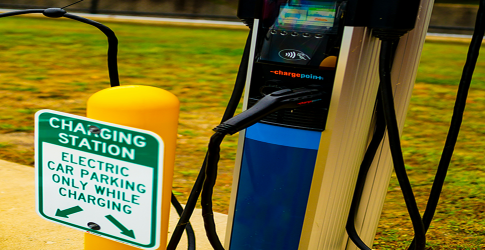As soon as the concept of electric powered cars was conceptualized, companies and manufacturers started a competition to build the most carbon-neutral automobile with the goal of significantly reducing the world’s pollution rate.
Despite this, many people claim that electric vehicles (EVs) do not have the impact on the climate that manufacturers promised. Is this the case, or are claims like this just a myth?
I love driving my non-electric vehicle and I plan to drive it for as long as I can, but I cannot deny that EVs are helping the environment. While fossil fuels are required to produce each EV, the long-term effects will ultimately have a greater impact on the world, especially as nonrenewable fuel sources continue to diminish.
So where do the myth’s roots lie? Well, it starts with gathering the materials to make the car. Lithium-ion batteries are the power source of just about every electric car, with most vehicles requiring two or more to operate. The most efficient and cost-effective way to obtain lithium is to mine it, preferably using fossil-fueled mining equipment to get it. Yang Shao-Horn, JR East Professor of Engineering in the MIT Departments of Mechanical Engineering and Materials Science and Engineering, elaborated on the carbon output caused by the mining.
“Currently, most lithium is extracted from hard rock mines or underground brine reservoirs, and much of the energy used to extract and process it comes from CO2-emitting fossil fuels,” according to Shao-Horn. “Particularly in hard rock mining, for every tonne of mined lithium, 15 tonnes of CO2 are emitted into the air.”
Producing EVs also requires a significant amount of greenhouse gas emissions. Further in her studies at MIT, Shao-Horn discovered that 77% of the world’s supply of EVs are manufactured in China, where coal, a fuel source that emits nearly twice the amount of greenhouse gases, is the primary power source when producing the parts necessary to create the cars.
Charging EVs also comes at a price. Power sources other than solar panels and wind turbines rely on fossil fuels to generate electricity, further adding to the argument that cars with an electric power source do not have an effect on reducing the world’s pollution rates.
Despite this, EVs still produce less carbon dioxide emissions than the average gasoline powered car during its lifetime.
To put that in perspective, vehicles that use internal combustion engines are widely considered a significant producer of carbon emissions. According to a report in the Journal of Cleaner Production, internal combustion engines, which rely on fossil fuels for power, have increased the amount of carbon emissions within the transportation sector.
Also, Catalina Jaramillo from factcheck.org said that over the lifespan of an EV, less greenhouse gas emissions are produced as compared to gasoline powered cars.
“Today, the new MY (model year) 2023 electric vehicles and plug-in hybrid electric vehicles on the road have led to 11% lower CO2 emissions,” according to The EPA Press Office.
If you ask me, EVs do more for the climate than an internal combustion engine. Regardless, there is a high likelihood that we will all someday drive an EV or at least use some form of alternative energy as fossil fuels are used up, which in turn will cause pollution rates to drop and give humanity a greener earth.
Warden is the opinion editor for the Liberty Champion.
